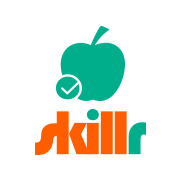Description

PowerAlumni

Tinybop
Comprehensive Overview: PowerAlumni vs Tinybop
PowerAlumni and Tinybop are distinct products serving different markets and purposes. Let’s look at each one separately to provide a comprehensive overview:
PowerAlumni:
a) Primary Functions and Target Markets:
- Primary Functions: PowerAlumni is a platform designed to enhance alumni engagement for educational institutions. It provides a suite of tools to help schools, colleges, and universities maintain and deepen relationships with their alumni. Key features often include networking opportunities, event management, fundraising capabilities, and communication tools to facilitate interaction between alumni and their alma mater.
- Target Markets: The primary target market for PowerAlumni is educational institutions ranging from high schools to universities. It focuses on organizations looking to build long-term relationships with their alumni, optimize their alumni networks for various strategic goals, including fundraising and community building, and increase overall alumni participation.
b) Market Share and User Base:
- PowerAlumni typically operates in a niche market focused on educational institutions. The market share is generally reflective of the adoption rate by educational entities, which is influenced by the increasing need for effective alumni relationship management. The user base can vary widely depending on the institution's size and the number of alumni they engage with.
c) Key Differentiating Factors:
- Integration with existing educational platforms and CRM systems.
- Customization capabilities to tailor engagement strategies based on specific institutional needs.
- Data-driven insights that help institutions understand alumni engagement patterns and improve strategies.
Tinybop:
a) Primary Functions and Target Markets:
- Primary Functions: Tinybop is a company that creates educational applications for children. These apps often focus on science, technology, engineering, art, and math (STEAM) education, aiming to inspire curiosity and learning through interactive and beautifully-designed digital experiences. Examples include apps that allow children to explore the human body, weather systems, and basic engineering concepts.
- Target Markets: Tinybop's target market primarily consists of children, parents, and educators. It appeals to families seeking educational technology that promotes hands-on learning and to schools that are integrating digital tools into their classroom environments.
b) Market Share and User Base:
- Tinybop operates in the educational technology market segment, particularly within digital learning apps for children. While specific market share data might not be readily available, the user base comprises app downloads sold through platforms like the Apple App Store and Google Play, which are indicative of its popularity. The market is competitive but growing as more parents and educators incorporate digital tools into their educational strategies.
c) Key Differentiating Factors:
- Design-centric and intuitive app interfaces that appeal to young users.
- Focus on STEAM topics, offering a wide range of engaging educational content.
- Strong emphasis on building critical thinking and problem-solving skills through exploration and interactive learning experiences.
Comparative Overview:
- Primary Functionality: PowerAlumni serves educational institutions with a focus on alumni engagement, while Tinybop serves the educational needs of children through interactive apps.
- Target Markets: PowerAlumni targets institutions, whereas Tinybop targets both end consumers (children and parents) and educators.
- User Experience: PowerAlumni provides tools for institutional clients, focusing on engagement and data analytics, while Tinybop emphasizes user-friendly and visually appealing interfaces for children.
Both products serve the educational sector but occupy distinctly different niches. PowerAlumni focuses on relationships post-graduation, and Tinybop works on building foundational knowledge in children. Each product’s success is measured differently based on the specific needs and goals of their respective audiences.
Contact Info

Year founded :
Not Available
Not Available
Not Available
Not Available
Not Available

Year founded :
Not Available
Not Available
Not Available
Not Available
Not Available
Feature Similarity Breakdown: PowerAlumni, Tinybop
Without specific data on PowerAlumni and Tinybop as of my last update in October 2023, I can offer a general approach to analyzing feature similarities and differences between two products that might fall into the education or alumni engagement sectors. However, please note that for accurate and up-to-date comparisons, you would need to reference the current feature sets of each platform from their official resources or recent reviews.
a) Core Features They May Have in Common
PowerAlumni:
PowerAlumni is likely geared toward alumni management, engagement, and networking. Common features might include:
- Alumni Database: A comprehensive database for managing alumni profiles and records.
- Communication Tools: Email, newsletters, and possibly social media integration for engaging alumni.
- Event Management: Tools for organizing and managing alumni events, such as reunions or networking events.
- Donations and Fundraising: Features to facilitate and track financial contributions from alumni.
Tinybop:
Tinybop is known for creating interactive educational applications for children. While it focuses more on education, there might still be overlapping features:
- Interactive Content: Engaging, interactive modules that educate users, similar to how PowerAlumni might engage with alumni through interactive newsletters or webinars.
- User Profiles: Management of user data can be akin to managing alumni records.
- Communication Features: Some educational apps include communication tools for user engagement.
b) User Interface Comparison
-
PowerAlumni UI:
- Likely follows a professional, clean, and organized design.
- Possibly dashboard-oriented for easy access to data and analytics.
- Primarily desktop/web interface with potential mobile functionality for on-the-go access.
-
Tinybop UI:
- Colorful and visually engaging, targeting children.
- Likely simple and interactive with touch-friendly designs.
- Primarily mobile-oriented, as Tinybop’s offerings are usually in app format.
c) Unique Features
Unique to PowerAlumni:
- Alumni Networking Tools: Specific to facilitating connections between alumni, similar to social networking features.
- Fundraising Capabilities: Tools specific to managing donations and alumni contributions.
- Career Services Integration: Possible features that integrate career development or job boards for alumni.
Unique to Tinybop:
- Educational Modules: Specifically tailored educational games and modules for children.
- Augmented Reality and Simulations: Interactive simulations that might be unique selling points for children’s learning.
- Parental Control and Monitoring: Features that allow parents to monitor and control app usage and learning progress.
In summary, while both PowerAlumni and Tinybop provide interactive and engaging experiences to their respective users, they cater to different audiences and have distinct primary functions. Understanding these differences would require reviewing the most current features from their websites or official announcements.
Features

Not Available

Not Available
Best Fit Use Cases: PowerAlumni, Tinybop
To determine the best fit use cases for PowerAlumni and Tinybop, it's essential to understand the primary functions and target audiences of each product.
PowerAlumni
a) Best Choice for PowerAlumni
PowerAlumni is a platform typically designed to manage alumni relationships and enhance networking opportunities for educational institutions or organizations with a large alumni base. Here are the specific scenarios where it excels:
-
Educational Institutions: Colleges, universities, and high schools looking to maintain a strong connection with their alumni can use PowerAlumni to facilitate communication, organize reunions, and support fundraising campaigns.
-
Non-Profit Organizations: Non-profits that rely on networking and relationship-building can use PowerAlumni to keep former members or supporters engaged and informed, supporting continued advocacy or financial contributions.
-
Professional Associations: Organizations such as trade associations or industry groups that focus on career development and networking can utilize PowerAlumni to provide value-added services for their members.
-
Corporate Alumni Networks: Large corporations wishing to maintain a network of former employees for potential rehiring, business opportunities, or brand advocacy.
Industry Verticals and Company Sizes
PowerAlumni caters primarily to educational and non-profit sectors. It's suitable for medium to large institutions or organizations that have a significant number of alumni or former members to manage.
Tinybop
b) Preferred Scenarios for Tinybop
Tinybop specializes in creating educational apps and content for children, focusing on interactive learning experiences. It's known for high-quality, engaging, and educationally sound applications that stimulate curiosity and learning. Ideal use cases include:
-
Educational Technology Providers: Companies or projects developing educational tools or apps for children can leverage Tinybop's experience in creating engaging educational content.
-
Schools and Educational Programs: Institutions integrating interactive digital tools into their curricula may find Tinybop's offerings align well with their educational goals.
-
Parents and Homeschooling: Parents looking for engaging and educational digital content for their children can turn to Tinybop's apps to supplement traditional learning.
-
Libraries and Learning Centers: Organizations offering educational resources to the public, such as libraries, can use Tinybop apps to enhance their learning materials for kids.
Industry Verticals and Company Sizes
Tinybop caters predominantly to the education technology sector. It is particularly suitable for small to medium-sized enterprises focusing on early childhood and K-12 education.
Summary
PowerAlumni is ideal for organizations focusing on maintaining and leveraging a network of alumni or former members, mainly in the education and non-profit sectors. Tinybop excels in developing interactive educational tools for children, catering to entities within the education sector, including schools, ed-tech companies, and parents. Both products serve different needs and target audiences, with PowerAlumni appealing more to relationship management in larger networks, while Tinybop focuses on child-centered educational innovation.
Pricing

Pricing Not Available

Pricing Not Available
Metrics History
Metrics History
Comparing undefined across companies
Conclusion & Final Verdict: PowerAlumni vs Tinybop
To provide a conclusion and final verdict for PowerAlumni and Tinybop, it's important to consider various factors such as target audience, pricing, features, ease of use, and overall value for the intended users.
Conclusion and Final Verdict
a) Considering all factors, which product offers the best overall value?
PowerAlumni and Tinybop each serve distinct purposes and audiences, making a direct comparison challenging. However, if we assess them based on their value for their specific targets:
-
PowerAlumni offers the best overall value for educational institutions or organizations seeking a robust alumni engagement platform. Its ability to facilitate networking, community building, and resource sharing among alumni makes it a valuable tool for schools, colleges, and similar entities.
-
Tinybop, on the other hand, provides excellent value for parents and educators looking for educational apps that engage children in learning through interactive experiences. With a variety of apps designed to stimulate curiosity and learning in the sciences and the arts, it offers substantial educational value.
Ultimately, the best overall value depends heavily on the user's needs: alumni networking vs. children's educational engagement.
b) Pros and Cons of Choosing Each Product
PowerAlumni
-
Pros:
- Provides comprehensive tools for alumni engagement and network building.
- Features like event management, fundraising, and communication tools tailored for institutions.
- Enhances alumni relations, potentially increasing support and contributions.
-
Cons:
- May be complex for users not familiar with the needs of alumni management.
- Could require ongoing support and training to use effectively.
- Pricing might be higher, reflecting a comprehensive feature set that not all users may need.
Tinybop
-
Pros:
- Engaging and interactive apps designed specifically for children.
- Encourages learning in various subjects through play and exploration.
- User-friendly and visually appealing, capturing children's attention.
-
Cons:
- Limited to child-centric educational activities, not suitable for older audiences.
- Requires in-app purchases for additional content, which can add up.
- Depends on technology access, potentially less appealing for those preferring physical learning tools.
c) Specific Recommendations for Users Trying to Decide Between PowerAlumni vs Tinybop
-
Identify Your Primary Objective: If your goal is to enhance alumni relations and community interaction, PowerAlumni is likely the better choice. If you're looking to provide educational experiences for children, Tinybop fits the bill more aptly.
-
Consider Your Audience: For institutions, the engagement and long-term benefits of using PowerAlumni can outweigh its cons. Parents and educators focusing on interactive learning for children should prioritize Tinybop.
-
Assess Budget and Resources: Evaluate the cost-effectiveness of each tool concerning your budget. Institutions might find PowerAlumni a worthy investment for alumni engagement, whereas parents may prefer the subscription model of Tinybop for ongoing educational content.
In conclusion, the decision between PowerAlumni and Tinybop should be guided by the specific needs and circumstances of the user, with careful consideration of the pros and cons of each platform related to its intended use-case.
Add to compare
Add similar companies



